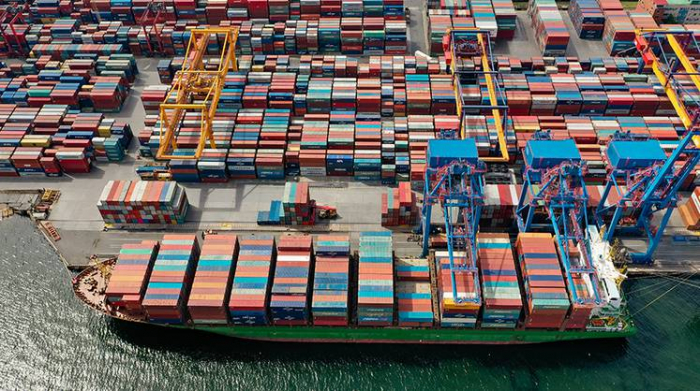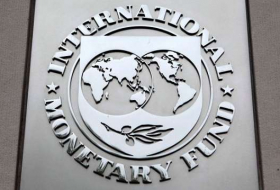The recent disruptions in logistics schemes have resulted in substantial price hikes for freights. This has become one of the main factors accelerating global inflation and price gouging. Experts claim the negative impact of logistics problems will have more severe consequences for the world economy.
Alp Arslan Imamgulu, a security and logistics expert, commented on the causes and stages of the ongoing problems in his interview to AzVision.az and stressed how crucial it is to build alternative logistical mechanisms:
‘We have witnessed several stages of price hikes in logistics: before the COVID-10, during the pandemic and after the Russia-Ukraine war. The pre-COVID-19 increases mostly concerned multimodal and intermodal transports in sea and container freight. The pandemic caused delays due to numerous transit restrictions at customs, which generated hikes for inland transportations. However, more serious global growths that came about as the Russia-Ukraine war started shook both the Eurasian continent and the rest of the world. The shifts in routes in the Caspian Sea basin, surrounding regions and among Europe, Russia, and the Far East due to restrictions imposed on Russia and many other artificial and natural obstacles are directly reflected in the logistics reports by large companies.
Therefore, price surges in marine, rail, container multimodal, intermodal, and inland transportations pressured the retail prices of products as a direct element of the supply chain. The ongoing global economic-political issues will decide the further direction of prices and possible increases in logistics costs.
I believe many countries are now directing all efforts at regulating logistics issues, because they put a tremendous pressure on the economy. We are also on the lookout for alternatives. Azerbaijan could benefit from these networks mostly through the North-West Corridor, particularly the logistics routes through Georgia. However, introducing the Zangazur Corridor as an option and preparing alternative routes at the inland crossing points due to the growing transit cargo through Azerbaijan over the Caspian Sea are more important at the moment. These matters affect the overall costs in logistics, consequently the retail product prices and the economy in general.’
- How urgent is creating new logistics mechanisms to avoid similar challenges in the future and what are the options for Azerbaijan in this regard?
‘Although we spare no efforts in all possible directions as the state of Azerbaijan, there are many challenges in the world, which require being prepared for risks that may occur under the current circumstances in a hybrid environment of sorts. Most logistics companies have a long-term vision rather than a short-term one, which requires meticulous planning, as they have an obligation to deliver the products to the destination at a designated time. The priority for these companies is fulfilling their obligations, albeit at additional costs at times. This will certainly lead to price-increase, which might cause dissatisfaction and shortcomings in the fulfillment of given obligations.
Hence, the efforts of major companies and international relations are aimed at preparing logistics routes, corridors, and new alternative networks. The focal point here is the sea freights to enable transportation over the Eastern and Western corridors. A glance at Eurasia is enough to see that the most risk-free and safe way against the current events and wars across the world is marine transportation. At the same time, restrictions imposed on inland transport have congested the sea transport and increased the demand for it. Consequently, this is another factor that plays a role in price surges.
Azerbaijan is expected to experience substantial growth in transit cargo transport over the Caspian Sea basin. Moreover, Azerbaijan’s efforts in making the Zangazur Corridor a reality and readiness to fulfill obligations expected of us may transform our country into a logistics hub given the current trends in Eurasia and globally.
Sahil Isgandarov
More about:
















































